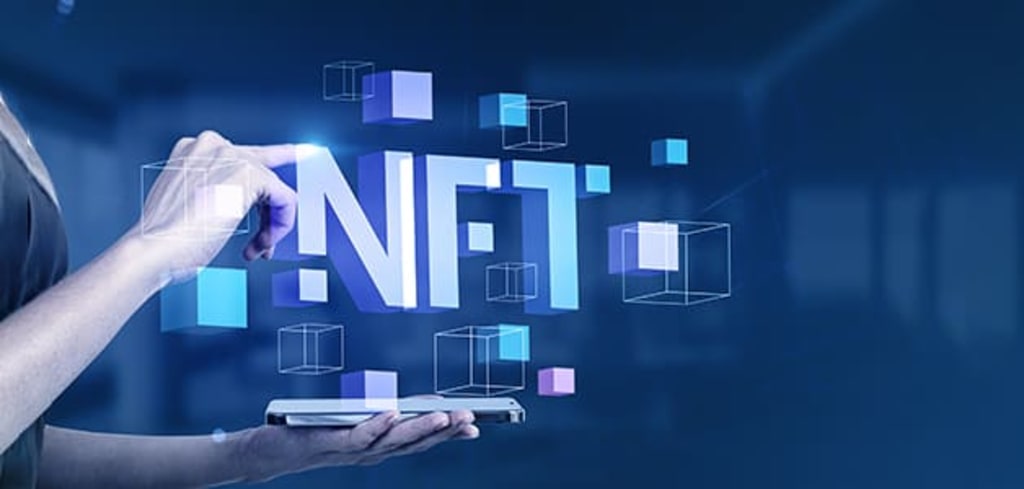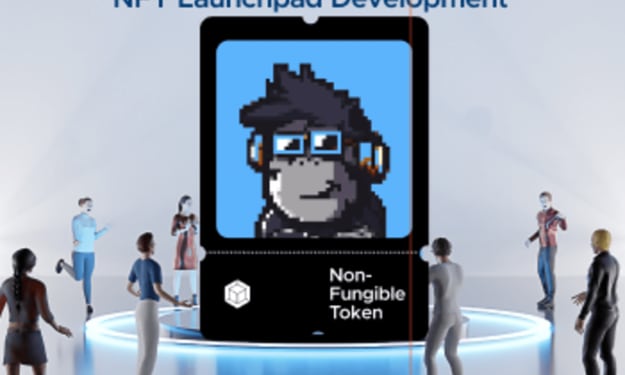Dynamic NFTs | Understanding the Dynamics of dNFTs
Published by: Oodles Blockchain

With dynamic NFTs, the next phase enabled by NFT development services has started. Up until now, the majority of NFTs have been static, used mostly as digital collectibles, in NFT art projects, and in play-to-earn game endeavors.
The metadata of a static NFT is fixed during minting with a minting platform on a blockchain. This limits the use cases for them to creating blockchain-based fantasy sports leagues, tokenizing physical goods, and creating video games with a progression system.
For each of these, the metadata needs to be dynamic.
dNFTs, are useful in this situation since they can change based on external inputs.
In this post, we discuss what NFTs are, how dNFTs are elevating them, their possible use cases, and how those wishing to develop dNFTs can get started.
Understanding Dynamic NFTs
Simply put, a dynamic NFT is one that may alter in response to external factors. It is the smart contracts that bring variations in dynamic NFT Metadata modifications.
A smart contract developer codes a dNFT smart contract, which tells the underlying NFT how and when to update its metadata, with automated updates to do this.
Use cases like tokenizing real-world assets, developing progression-based video games, or establishing fantasy sports leagues on the blockchain require frequent data updates.
dNFTs provide the best of both worlds in these use cases because NFTs can alter certain portions of their metadata while still maintaining their unique IDs.
Also, Read | NFT Minting Platform Development | A Potential Business Concept
How they Function
As of this writing, ERC1155 on Ethereum is the most popular token development platform for dynamic NFTs.
dNFT development is gaining momentum on Solana and other blockchain platforms as well.
Using an oracle or an on-chain event, smart contracts in a dynamic NFT give instructions on how the dNFT’s metadata update will happen in response to a triggering event based on outside data.
Smart contracts enable the development of dNFTs that control updates, the unlocking of hidden traits or features, and image upgrades.
Only when an event triggers a smart contract do these conditional modifications take place. Events that are on-chain, off-chain, time-based, price-based, or location-based can all trigger a smart contract.
Oracles and Dynamic NFTs
Static data is the most sensible choice for many works of art and collectible NFTs.
After all, the permanence of keeping data on decentralized, immutable blockchains is one of the main benefits of NFTs.
This immutability prevents someone from, for instance, designing an NFT with a cat image and then switching it to a dog image after it sells.
However, some NFTs may profit from the flexibility to alter in numerous ways as they enter industries like gaming, where interactivity is crucial.
Oracles can help in this situation. Oracles are external systems that link blockchains to other systems through third-party data feeds (such as API3).
In essence, this means that dynamic NFTs can remain decentralized and fully ownable while using oracles to continuously adapt based on the latest knowledge and real-world information.
For instance, a game developer could use an oracle to gather weather information and automatically update the NFT if they wanted to make an NFT sword that changes shape whenever it rains.
The oracle updates the NFTs data continually automatically and in a decentralized manner without the need for human input.
Also, Read | Understanding Blockchain Oracles for Smart Contracts Advancement
Use Cases of dNFTs
- This advancement in NFTs will open up a variety of usage scenarios. Here are a few instances, but there are many more that are appearing.
- The metadata of a Dynamic NFT can record information on in-game character progression as the character advances in the game and unlocks new abilities or attributes.
- When a player character performs a particular action, an in-game object may become more effective. Efficiency rises as a result of the action. For instance, a user can increase a racecar’s speed and accuracy in a game by repairing it and updating its wheels, but with time, the efficiency degrades.
- In generative art, certain characteristics can change or develop depending on the environment.
- Tokenized real estate NFT can update and display changing metrics of the underlying asset.
- Using dynamic NFTs, users can create identities and certifications. Dynamic NFT-enabled passports can even save the most recent version of a person’s travel and personal history.
- Dynamic NFTs can represent ownership assets in augmented reality worlds, and user-generated actions and location-based events can augment their qualities and features. For instance, the information provided to guests via an interactive augmented reality hologram of a tour guide standing in front of the monumental can alter depending on the time of year, the day of the week, and other factors. A dynamic NFT with oracles and smart contracts to control and personalize the experience may own the whole thing.
Also, Read | Real Estate NFTs: Everything You Need to Know
Dynamic NFTs are a crucial development. They enable a wide range of use cases and increase the Web3 environment’s capabilities.
A key tool for bridging the divide between the physical and digital worlds will be dynamic NFTs.
Connect with our NFT developers for more information about how to get started with dNFTs development.
#NFT #NFTDevelopmentServices #NFTDevelopmentSolutions #NFTdevelopment #NFTwalletdevelopment #NFTDevelopmentCompany #NFTSolutionsDevelopment





Comments
There are no comments for this story
Be the first to respond and start the conversation.